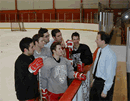|
Dr. Gordon Bloom is a Professor of Sport
Psychology at McGill University who has worked with the world’s
leading coaches and athletes as both a researcher and sport
psychology practitioner for over 20 years. He is currently the
director of the McGill Sport Psychology Research Laboratory, where
there are currently two inter-related themes of research that
have important implications for maximizing the benefits that
Canadians accrue through sport participation:
(1) the knowledge, strategies and behaviours of coaches
(2) the psychosocial aspects of post concussion
rehabilitation in athletes
The majority of research has taken place under theme one, and involves
identifying effective knowledge, strategies, and behaviours
employed by coaches in terms of leadership practices, mentoring,
and team building to develop successful and well-balanced
athletes. This research has led to a number of conclusions and
applied recommendations that explain what differentiates effective
coaches from ineffective ones. Related to this, he has received
numerous invitations from academic and sport coaching associations
to present his research to scientists, administrators, and coaches
at various levels of sport in many different countries. He
currently works for the United States Olympic Committee as part of
their National Team Coach Leader Education Program. He has also
been invited to present his practical coaching knowledge and
research in countries like Singapore, Finland, South Africa,
Ireland and Japan. On the second theme, his research program has
answered questions pertaining to the psychological and social
factors that affect and improve recovery from concussions. For
example, the results have identified the serious emotional
responses (depression, attempted suicide) and reduced academic
performance that athletes with this injury experience. The results
of this research highlight the need for practitioners to
incorporate social and psychological components for treating
concussed athletes, particularly those with long-term symptoms.
His 2004 publication in the British Journal of Sports Medicine
(Sport psychology and concussion: New impacts to explore) remains
one of the first empirical publications to link sport psychology
and concussions.
In addition to his teaching and research responsibilities at
McGill, Dr. Bloom is a member of the Canadian Sport Psychology
Association. In his professional practice, Dr. Bloom has consulted
with amateur, professional, Olympic, and Paralympic athletes and
taught them how to use mental skills to accelerate their level of
performance in sport and life.
Current Students/
Assistant Coaches
Jordan Lefebvre
Hometown: 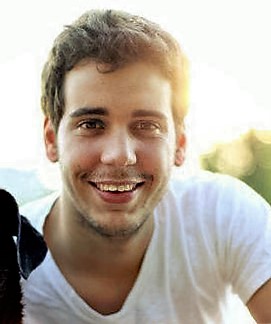
Saint-Denis de Brompton, Quebec
Undergraduate, MA Degrees:
BA in Psychology, Clinical Concentration, Bishop’s University;
MSc in Sport and Exercise Psychology, Queen’s University.
Current Degree:
PhD (in progress), Sport Psychology, McGill University.
Funding:
Recipient of the Doctoral Student Entrance Fellowship.
Research Interests:
My Master’s thesis investigated the prevalence of effective leadership behaviours of head coaches in youth sport. Among our findings, head coaches primarily displayed leadership through individualized consideration and inspirational motivation. Despite our findings, the research indicates that athletes are also subjected to the coinciding influences of assistant coaches, as well as formal and informal athlete leaders. Therefore, the research for my doctoral degree will explore the leadership dynamics within and across all leadership groups, and their collective impact on the athletic performance and personal development of athletes.
About me:
My interest in the field of sport psychology originates from my upbringing engrained within a high performance sport environment. My personal experiences playing varsity rugby at a Canadian University helped me recognize the role coaches play in facilitating the development and enjoyment of athletes. These experiences led me to focus my doctoral program of research on effective coach leadership behaviours. To contribute to this line of inquiry, I hope to acquire the expertise necessary to conduct rigorous and seminal research throughout my PhD. Beyond academia, I enjoy coaching youth hockey and rugby.
Publications:
Bloom, G. A., Lefebvre, J. S., & Smith, P.
(in press). Canadian case study conversation: Mentorship in
elite women’s ice hockey. In F. C. Chambers (Ed.),
Learning to mentor in sports coaching: A design thinking
approach. New York: Routledge.
Lefebvre, J. S., Evans, M. B, Turnnidge, J., Gainforth,
H. L., & Côté, J. (2016). Describing and classifying coach
development programs: A synthesis of empirical research
and applied practice. International Journal of Sports
Science & Coaching, 11(6), 887-899.
Grant, M., Bloom, G.A., & Lefebvre, J. (near
completion). Coaches’ perceptions of a formalized
mentoring program with US Lacrosse.
Lefebvre, J. S., & Cote, J. (in progress).
A systematic observation of coach leadership behaviours in
youth sport.
Lefebvre, J. S., Cowburn, I., Martin, L. J., & Côté, J.
(in progress). Understanding the role of ‘Player
Development Coaches’ in the National Hockey League: A
qualitative examination.
Danielle Alexander
Hometown: 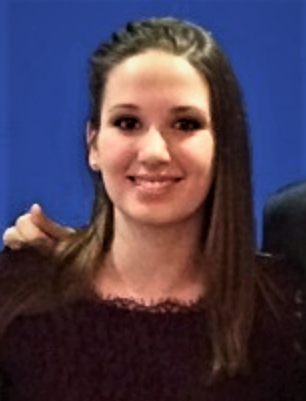
Newmarket, Ontario
Undergraduate, MA Degrees:
BA in Psychology, Honours, Brock University;
MA in Kinesiology and Physical Education, Specialization in Sport Psychology, McGill University.
Current Degree:
PhD (in progress), Sport Psychology, McGill University.
Funding:
Recipient of the Centre de recherché interdisciplinaire en réadaptation du Montréal métropolitain doctoral fellowship.
Research Interests:
The participant sample for my master’s degree was one of the first to only include female Paralympic athletes. Collectively, these athletes achieved an average of eight combined Paralympic and Para Pan American medals. A hierarchical content analysis revealed the athletes’ perceptions and experiences of both effective and ineffective coaching strategies and behaviours, including how these experiences affected them on a personal and professional level. One of the conclusions involved a desire to work with female coaches, which is unfortunate since only one out of 18 Canadian head coaches were female at the Paralympic Games in Pyeongchang in 2018. Based on these findings, my doctoral research is intended to create an empirically-based mentoring program designed for female disability sport coaches to help promote and empower females in leadership and decision making roles.
About me:
My interest in sport began at an early age with my involvement in figure skating and dancing. Since then, I have participated in each sport competitively and developed transitional life skills, including time management, dedication, and perseverance, that have been applied to my academic studies. My love of figure skating, in particular, led me to become a coach and choreographer in this sport, which further exposed me to working with athletes with a physical disability. As a result, I have gained an increased interest in the knowledge and behaviours of female parasport coaches. I hope that my research results will help expand the literature on coaching in physical disability.
Publications:
Alexander, D., Bloom, G. A., Taylor, S. T. (conditionally accepted). Female Paralympic athlete views of effective and ineffective coaching practices.
Journal of Applied Sport Psychology, Special Edition on Psychology of Sports Coaching.
Duncan, L. R., Hallward, L., & Alexander, D. (conditionally accepted). Portraits of the personal and situational risk factors that lead to doping initiation in adolescent athletes. Psychology of Sport and Exercise.
Alexander, D., Hallward, L., Duncan, L. R., & Caron, J. (near completion). Using an ethnographic content analysis to explore the North American media portrayal of the Russian state-sponsored doping program.
Rebner, J., Alexander, D., & Duncan, L. (under review). Talking your way to record times: Instructional vs. motivational self-talk and 10 km time-trial performance. Journal of Applied Sport Psychology.
David Urquhart
Hometown: 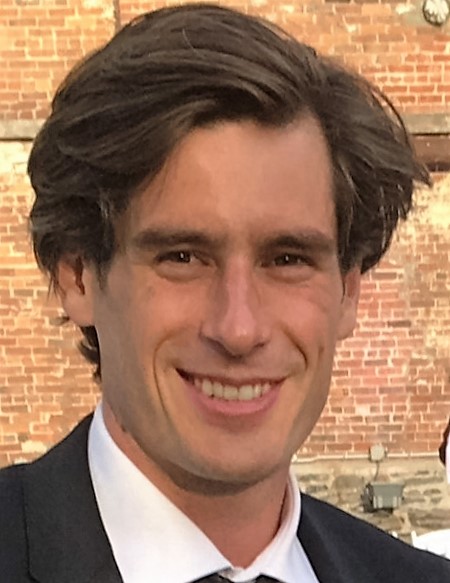
Thorold, Ontario
Degrees:
B.Comm – Concentration in Finance and Entrepreneurship, McGill University
Current Degree:
MA (in progress), Sport Psychology, McGill University
Research Interests:
High performance coaching and leadership
About me:
Sport psychology has played an important role in my development as a professional hockey player and in my current role as a University assistant hockey coach. My interest stems back to my first year as a student-athlete at McGill. Our team sport psychology sessions first introduced me to the importance of the mental side of the game, including the importance of leadership and team dynamics. This experience helped raise my game to a new level, including the transition from playing at McGill to the American Hockey League and to Serie A in Italy. Following my playing career, I accepted the challenge of rejoining the McGill Redmen hockey team as the assistant coach. My career goal is to coach professional hockey and I hope that studying coaching science in our sport psychology graduate program will enhance my coaching knowledge and skills. My research will focus on how successful coaches build and facilitate a successful hockey organization.
Becca Steins
Hometown: 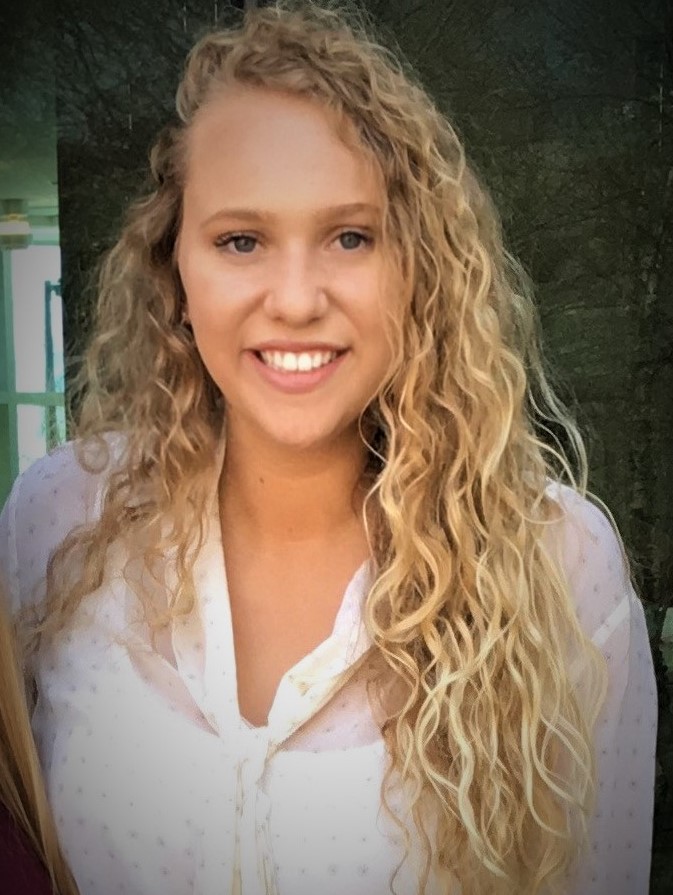
St. Louis, Missouri, USA
Degrees:
BA in Sport and Exercise Science and BA in Psychology, Drury University, United States
Current Degree:
MA (in progress) Sport Psychology, McGill University
Research Interests:
Psychological aspects of sport-concussions
Funding:
Recipient of the 2017-18 McGill International Research Master’s Award (MIRMA) and the 2017-18 Cooke Fellowship
About me:
My interest in sport psychology is rooted in the lessons I learned during my basketball career, which included playing at the Division II level in the United States. Specifically, many of my coaches pushed me mentally to improve my on-court performance. A great deal of my mental toughness actually developed off the court, as I dealt with the many sport injuries I suffered during my athletic career. My specific interest in concussions emerged as a result of the injuries I have personally experienced as well as from a series of behavioral neuroscience courses that I took in University that discussed the body-mind relationship. I am planning to study the recovery process for athletes with concussions.
Kathleen Belanger-Finn
Hometown: 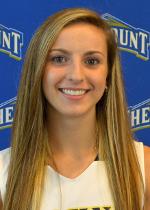
Saint-Lambert, Quebec
Degrees:
BSc, Major in Biology & Minor in Psychology, Mount St. Mary’s University, USA
Current Degree:
MA (in progress) Sport Psychology, McGill University
Research Interests:
Coaching and Leadership
About me:
My interest in sport psychology stems from playing basketball at a high-performance level. I played at the CÉGEP level in Quebec before being recruited to play as a Division 1 athlete in the NCAA. I became interested in the mental aspects of the game through my college basketball experiences. I played a high-pressure position of point guard which meant that I was often in charge of keeping the team on task with the coach’s game plan. As a result of my athletic experiences, I was interested in improving my leadership skills as a way to enhance my teammates’ performance. As I gained experience, I became team captain and increasingly involved in helping the younger players on my team. For these reasons, I decided to pursue a master’s degree in sport psychology, specializing in coaching and leadership. My research interests include the development of a culture in a sports program, and specifically how good leaders embrace their culture.
Siobhan Henderson
Hometown: 
Saint-Hubert, Quebec
Degrees:
BSc in Kinesiology, McGill University
Current Degree:
MA (in progress) Sport Psychology, McGill University
Funding:
Recipient of the 2018-2019 Cooke Fellowship
Research Interests:
Youth Sport Coaching
About me:
My interest in sport psychology stemmed from my background in competitive sport as a national springboard diver and my experience as a youth sport coach. In particular, I felt that my relationship with my coach was an important element of my diving success. As such, I became increasingly interested in effective coaching leadership strategies that can foster successful performances in sport, and in particular, how these strategies can be applied to the youth sport coaching environment. For these reasons, I decided to pursue a master’s degree in sport psychology, specializing in coaching and leadership, to further understand the coach-athlete relationship in youth sport.
Aaron Armstrong
Hometown: 
Teeswater, Ontario
Degrees:
B.Comm- Concentration in International Business, Ryerson University
Current Degree:
MA (in progress) Sport Psychology, McGill University
Research Interests:
High performance coaching, leadership, team culture
About me:
My interest in sport psychology originated through my journey as a U SPORTS varsity hockey player. Aside from solely focusing on my hockey performance, I also dedicated myself to off ice excellence, through community involvement and academic achievement. As a result, I was awarded the U SPORTS National Dr. Randy Gregg award for excellence in Academics, Community Service, & On Ice ability during my undergraduate education at Ryerson.
My leadership experiences have led me to become interested in studying the ways elite coaches create and sustain a culture of excellence in high performance sport for my graduate thesis. My career aspiration is to become a world class leader in high performance sport management by implementing effective leadership strategies that will foster a culture of excellence.
Former Graduate Students/
Alumni
Chantal Vallée, 2002
Publications:
Vallée, C.N., & Bloom, G.A., (2005). Building a successful university sport program: Key and common elements of expert coaches. Journal of Applied Sport Psychology, 17 (3), 179-196.
.Vallée, C.N., & Bloom, G.A., (2016). Four keys to building a championship culture. International Sport Coaching Journal, 3 (2), 170-177.
Current Position:
Head Coach, University of Windsor CIS basketball team
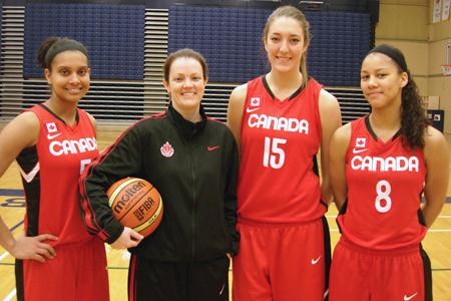
Julie Vanier, 2002
Publications:
Vanier, J.L., & Bloom, G.A., (2005). Personal experiences, rules, procedures, and aspects of aggression in competitive women's ice hockey. Avante, 11 (2), 66-82.
Bloom, G.A., & Vanier, J.L., (2004). Coaches' perceptions of aggression in elite women's ice hockey. In D.J. Pearsall & A. B. Ashare (Eds.), Safety in Ice Hockey, Fourth Volume, ASTM STP 1446, pp. 12-25. West Conshohocken, PA: American Society for Testing and Materials International.
Current Position:
Research Project Manager, ELGAN Study, Boston Medical Center, Department of Pediatric Neurology.
Amanda Horton , 2002
Publications:
Bloom, G.A., Horton, A.S., McCrory, P., & Johnston, K.M. (2004). Sport psychology and concussion: New impacts to explore. British Journal of Sports Medicine, 38 (5), 519-521.
Current Position:
Physical Education Instructor at Vanier College CEGEP, Montreal.
Tracey Heller, 2003
Publications:
Heller, T. L., Bloom, G. A., Neil, G. I., & Salmela, J. H. (2005). Sources of stress in NCAA Division I women ice hockey players. Athletic Insight: The Online Journal of Sport Psychology, 7, http:www.athleticinsight.com/Vol7Iss4/SourcesofStress.htm
Current Position:
Ph. D., Counseling Psychology, speciaizing in Sports Psychology, Florida State University. Currently practicing in California.
Tammy Wickwire, 2003
Publications:
Wickwire, T.L., Bloom, G.A., & Loughead, T.M. (2004). The environment, structure, and interaction process of elite same-sex dyadic sport teams. The Sport Psychologist, 18 (4), 381-396.
Bloom, G.A., Stevens, D.E., & Wickwire, T.L. (2003). Expert coaches' perceptions of team building. Journal of Applied Sport Psychology, 15 (2), 129-143.
Current Position:
Psychology Instructor at Mount Royal College, Calgary.
Todd Loughead, Post Doctoral Fellow, 2003
Current Position: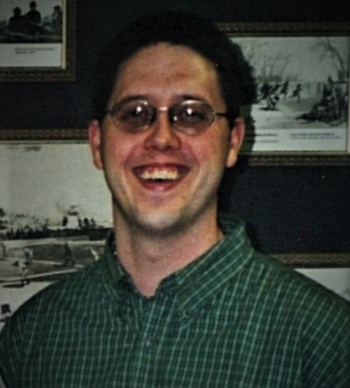
Professor, University of Windsor.
Martin Dupuis, 2004
Publications: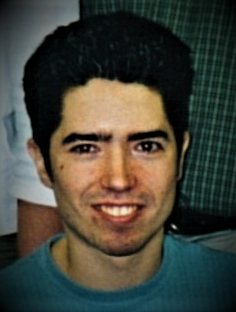
Dupuis, M., Bloom, G.A., & Loughead, T.M. (2006). Team captains' perceptions of athlete leadership. Journal of Sport Behavior, 29 (1), 60-78.
Current Position:
Working for Canadian government
Kim Shapcott, 2004
Publications:
Shapcott, K.M., Bloom, G.A., & Loughead, T.M. (2007). Factors influencing aggressive and assertive intentions of women ice hockey players. International Journal of Sport Psychology, 38 (2), 145-162.
Current Position:
Part-time Sport Psychology Instructor and Sport Psychology Consultant.
Kerry Cregan, 2005
Publications: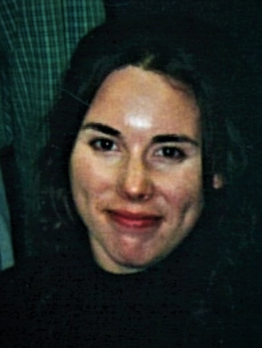
Cregan, K., Bloom, G.A., & Reid, G. (2007). Career evolution and knowledge of elite coaches of swimmers with a physical disability. Research Quarterly for Exercise and Sport, 78 (4), 339-350.
Current Position:
Fundraising Coordinator
Erin Shapcott, 2005
Publications:
Shapcott, E. J. B., Bloom, G. A., Johnston, K. M.,
Loughead, T. M., & Delaney, J. S. (2007). The effects of
explanatory style on concussed athletes. NeuroRehabilitation, 22 (3), 161-167.
Bloom, G.A., Loughead, T.M., Shapcott, E.J.B., Johnston, K.M., & Delaney, J.S. (2008). The prevalence and recovery of concussed male and female collegiate athletes. European Journal of Sport Science, 8 (5), 295-303.
Current Position:
Physiotherapist
Julie Newin, 2006
Publications:
Newin, J., Bloom, G.A., & Loughead, T.M. (2008). Youth ice hockey coaches perceptions of a team building intervention program. The Sport Psychologist, 22 (1), 54-72
Bloom, G.A., Loughead, T.M., & Newin, J. (2008). Team building for youth sport. Journal of Physical Education, Recreation & Dance, 79 (9), 44-47.
Current Position:
Elementary School Physical Education Teacher.
Julie Senécal, 2006
Publications: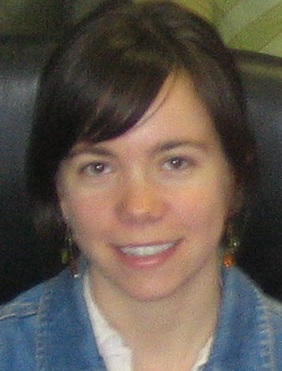
Senécal, J., Loughead, T.M., & Bloom, G.A. (2008). A season-long team building intervention program: Examining the effect of team goal setting on cohesion. Journal of Sport & Exercise Psychology, 30 (2), 186-199.
Current Position:
Lecturer at Université Sherbrooke & Sport Psychology Consultant.
Adam Carter, 2007
Publications: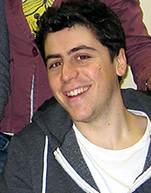
Carter, A. D., & Bloom, G.A. (2009). Coaching knowledge and success: Going beyond athletic experiences. Journal of Sport Behavior, 32 (4), 419-437.
Current Position:
Management Consultant.
Laurie Wilson, 2008
Publications: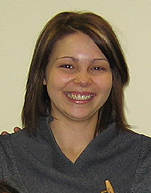
Wilson, L.M, Bloom, G.A., & Harvey, W.J. (2010). Sources of knowledge acquisition: Perspectives of the high school teacher/coach. Physical Education and Sport Pedagogy, 15 (4), 383-399.
Current Position:
High School Physical and Health Education Teacher.
Catherine Duchesne, 2008
Publications: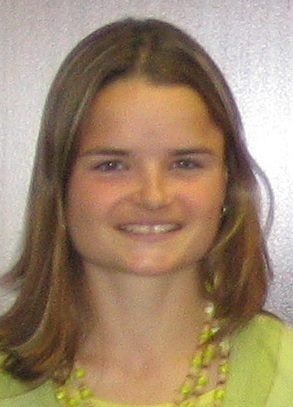
Duchesne, C., Bloom, G.A., & Sabiston, C.M. (2011). Intercollegiate coaches’ experiences with elite international athletes in an American sport context. International Journal of Coaching Science, 5 (2), 49-68.
Current Position:
Sport Psychology Consultant.
Kristina Hassell, 2008
Publications: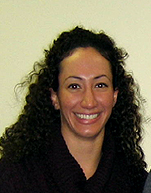
Hassell, K., Sabiston, C.M, & Bloom, G.A. (2010). Exploring the multiple dimensions of social support among elite female adolescent swimmers. International Journal of Sport Psychology, 41 (4), 340-359.
Current Position:
Fitness Consultant
Hailey Banack, 2009
Publications: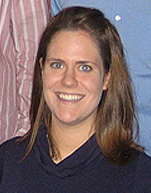
Banack, H.R., Sabiston, C.M., & Bloom, G.A. (2011). Coach autonomy support, basic need satisfaction, and intrinsic motivation of Paralympic athletes. Research Quarterly for Exercise and Sport, 82 (4), 722-730.
Banack, H.R., Bloom, G.A., & Falcao,W.R. (2012). Promoting long term athlete development in Cross Country Skiing through competency-based coach education: A qualitative study. International Journal of Sports Science and Coaching, 7 (2), 301-316.
Current Position:
Postdoctoral fellow at the University at Buffalo.
Jon Stein, 2009
Publications: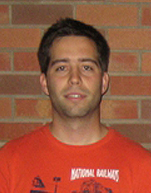
Stein, J., Bloom, G.A., & Sabiston, C.M. (2012). Influence of perceived and preferred coach feedback on youth athletes’ perceptions of team motivational climate. Psychologyof Sport and Exercise, 13 (4), 484-490.
Current Position:
Elementary School Physical & Health Education Teacher.
Joe Bucci, 2010
Publications: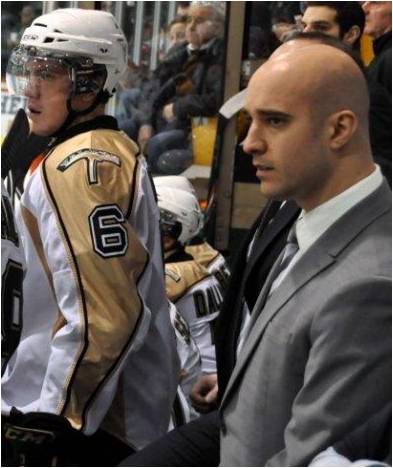
Bucci, J., Bloom, G.A., Loughead, T.M., & Caron, J.G. (2012). Ice hockey coaches’ perceptions of athlete leadership. Journal of Applied Sport Psychology, 24 (3), 243-259.
Current Position:
Head Coach Laval-Montreal Rousseau Royal, Midget AAA
Holly Tawse, 2011
Publications:
Tawse H., Bloom, G.A., Sabiston, C.M., & Reid, G. (2012). The role of coaches of wheelchair rugby in the development of athletes with a spinal cord injury. Qualitative Research in Sport, Exercise and Health, 4 (2), 206-225.
Current Position:
Australian Wheelchair Tennis Association
Marc Cormier, 2011
Publications:
Cormier, M.L., Bloom, G.A., & Harvey, W.J. (2015). Elite coach perceptions of cohesion on coacting teams. International Journal of Sport Science and Coaching, 10 (6), 1039-1053.
Current Position:
Assistant Professor, University of Kentucky.
Scotty Rathwell, 2012
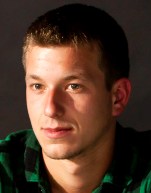 Publications: Publications:
Rathwell, S., Bloom, G.A., & Loughead, T.M. (2014). Head coaches’ perceptions on the roles, selection, and development of the assistant coach. International Sport Coaching Journal, 1, 5-16.
Current Position:
Assistant Professor, University of Lethbridge.
Gillian Ferrari, 2014
Publications: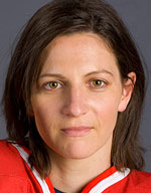
Ferrari, G., Bloom, G.A., Gilbert, W.D., & Caron, J.G. (2017). Experiences of competitive masters swimmers: Desired coaching characteristics and perceived benefits. International Journal of Sport and Exercise Psychology, 15 (4), 409-422.
Current Position:
Leadership management consultant
C. A. Sinotte, 2014
Publications: 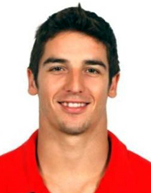
Sinotte, C.A., Bloom, G.A., &
Caron, J.G. (2015). Roles, responsibilities, and
relationships of full-time university assistant coaches.
Sports Coaching Review, 4 (2), 99-114.
Current Position:
Sports Broadcaster and Reporter for TVA..
Katherine Fairhurst, 2015
ssd
Publications:
Fairhurst, K.E., Bloom, G.A., & Harvey, W.J. (2017). The learning and mentoring experiences of Paralympic coaches. Disability and Health Journal, 10(2), 240-246.
Koh, K.T., Bloom, G.A., Fairhurst, K. E., Paiement, D. M., & Kee, Y. H. (2014). An investigation of a formalized mentoring program for novice basketball coaches. International Journal of Sport Psychology, 45 (1), 11-32.
Current Position:
Ph.D. Candidate, Sport Psychology, West Virginia University
Charline Labonté, 2015
Current Position: 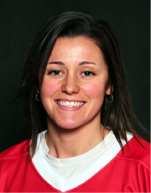
Goalie coach/instructor and chef
Jeemin Kim, 2015
Publications: 
Kim, J., Bloom, G.A., &
Bennie, A. (2016). Intercollegiate coaches’
experiences and strategies for coaching first-year
athletes. Qualitative Research in Sport,
Exercise and Health, 8 (4), 394-408.
Current Position:
Ph.D. Candidate, Sport Psychology, Wilfrid Laurier University
Jeff Caron, MA 2012, PhD 2016
M.A. thesis title:
The effects of career ending concussions on retired National Hockey League players.
Ph.D. dissertation title:
The development and implementation of a concussion education program for high school student-athletes
Publications:
Caron, J.G., Bloom, G.A., & Podlog, L. (2018). Are
athletes psychologically ready for a return to sport
following a concussion? British Journal of Sports
Medicine, 52 (1), 1-2.
Delaney, J.S., Caron, J.G., Correa, J.A., & Bloom,
G.A. (2018). Why Professional football players chose not
to reveal their concussion symptoms during a practice or
game. Clinical Journal of Sport Medicine, 28
(1), 1-12.
Caron, J.G., Rathwell, S., Delaney, J.S., Johnston,
K.M., Ptito, A., & Bloom, G.A. (2018). Development,
implementation and assessment of a concussion education
programme for high school student-athletes. Journal
of Sports Sciences, 36 (1), 48-55.
Donoso-Morales, D., Bloom, G.A., & Caron, J.G.
(2017). Creating and sustaining a culture of excellence:
Insights from accomplished university team-sport
coaches. Research Quarterly for Exercise and Sport,
88 (4), 503-512 .
André-Morin, D., Caron, J.G., & Bloom, G.A. (2017). Exploring the unique challenges faced by female university athletes experiencing prolonged concussion symptoms. Sport, Exercise, and Performance Psychology, 6 (3), 289-303.
Ferrari, G., Bloom, G.A., Gilbert, W.D., & Caron, J.G. (2017). Experiences of competitive masters swimmers: Desired coaching characteristics and perceived benefits. International Journal of Sport and Exercise Psychology, 15 (4), 409-422.
Morales, D.D., Bloom, G.A., & Caron, J.G. (2017). Canadian University coaches’ perceptions on the importance of effective planning and communication skills. CienciAmérica, 6 (2), 1-6.
Caron, J.G., Bloom, G.A., Balish, S.M., & Harvey, W.J. (2016). Insights from adolescent athletes concerning the acquisition and dissemination of concussion information. Journal of Sport Pedagogy and Research, 2 (3), 4-13.
Caron, J.G., Bloom, G.A., Loughead, T.M., & Hoffmann, M.D. (2016). Paralympic athlete leaders’ perceptions of leadership and cohesion. Journal of Sport Behavior, 39 (3), 219-238.
Sinotte, C.A., Bloom, G.A., & Caron, J.G. (2015). Roles, responsibilities, and relationships of full-time university assistant coaches. Sports Coaching Review, 4 (2), 99-114.
Caron, J. G., Bloom, G. A., & Bennie, A. (2015). Canadian high school coaches’ experiences, insights, and perceived roles with sport-related concussions. International Sport Coaching Journal, 2, 285–297.
Caron, J. G., Bloom, G. A., Falcão, W. R., & Sweet, S. N. (2015). An examination of concussion education programmes: A scoping review methodology. Injury Prevention, 21, 301–308.
Caron, J. G., & Bloom, G. A. (2015). Ethical issues surrounding concussions and player safety in professional ice hockey. Neuroethics, 8, 5–13.
Bloom, G. A., Falcao, W. R., & Caron, J. G. (2014). Coaching high performance athletes: Implications for coach training. In A. R. Gomes, R. Resende, & A. Albuquerque (Eds.), Positive human functioning from a multidimensional perspective: Promoting high performance, (Vol. 3, pp. 107-132). New York: Nova Science.
Caron, J. G., Bloom, G. A., Johnston, K. M., & Sabiston, C. M. (2013). Effects of multiple concussions on retired National Hockey League players. Journal of Sport and Exercise Psychology, 35, 168–179.
Bucci, J., Bloom, G. A., Loughead, T. M., & Caron, J. G. (2012). Ice hockey coaches’ perceptions of athlete leadership. Journal of Applied Sport Psychology, 24, 243–259.
Current Position:
Assistant Professor, University of Montreal
Daniela Donoso-Morales , 2016
Publications: 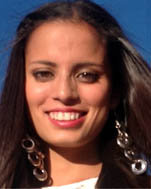
Donoso-Morales, D., Bloom, G.A., & Caron, J.G. (2017).
Creating and sustaining a culture of excellence: Insights
from accomplished university team-sport coaches.
Research Quarterly for Exercise and Sport, 88 (4),
503-512.
Donoso-Morales, D., Bloom, G.A., & Caron, J.G. (2017).
Canadian University coaches’ perceptions on the importance
of effective planning and communication skills.
CienciAmérica, 6 (2), 1-6.
Current Position:
Working at the University of Twente teaching academic writing for international students
Daphnée André-Morin, 2016
Publication: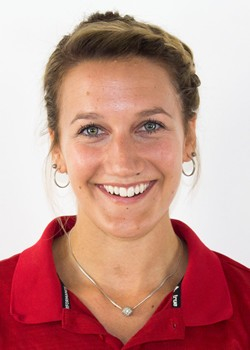
André-Morin, D., Caron, J.G., & Bloom, G.A. (2017). Exploring the unique challenges faced by female university athletes experiencing prolonged concussion symptoms. Sport, Exercise, and Performance Psychology, 6 (3), 289-303.
Current Position:
Bilingual Support Co-ordinator at Educational Technology Company.
Julia Allain, 2016
Publication: 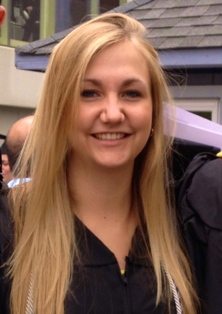
Allain, J., Bloom, G.A., & & Gilbert,
W.D. (in press). Successful high performance ice hockey
coaches’ intermission routines and situational factors that
guide implementation. The Sport Psychologist.
Current Position:
Psychology Teacher and Soccer Coach at USA Prep School.
Danielle Alexander, 2017
Publication: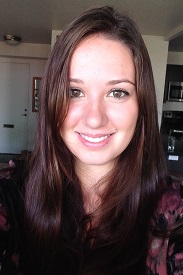
Alexander, D., Bloom, G.A., & Taylor,
S.L. (under review). Female Paralympic athlete views of
effective and ineffective coaching practices.
Current Position:
Research Associate, McGill University
Liam Heelis, 2017
Publication: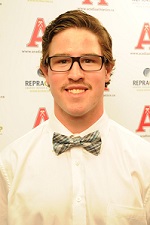
Heelis, L., Bloom, G.A., & Caron, J.G. (in progress). Canadian Major Junior ice hockey coaches’ perceptions regarding the identification, management, and transformation of difficult athletes.
Current Position:
Professional hockey player
William Falcao, MA 2011, PhD 2018
M.A. thesis title: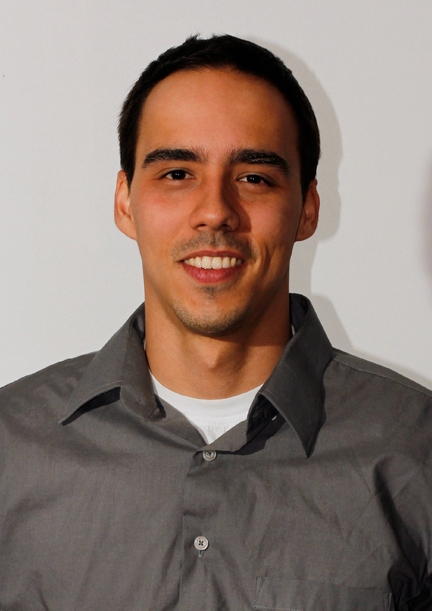
A positive youth development coach education program and the United Nations Millennium Development Goals
Ph.D. dissertation title:
Development, delivery, and assessment of a humanistic coaching workshop and its impact on youth development
Publications:
Douglas, S., Falcão, W.R., & Bloom, G.A. (2018). Career
development and learning pathways of Paralympic coaches with
a disability. Adapted Physical Activity Quarterly,
35 (1), 93-110.
Falcão, W.R., Bloom, G.A., & Bennie, A. (2017). Coaches’
experiences learning and applying the content of a
humanistic coaching workshop in youth sport settings. International Sport Coaching Journal, 4 (3), 279-290
Falcão, W.R., Bloom, G.A., & Loughead, T.M. (2015).
Coaches’ perceptions of team cohesion in Paralympic sports. Adapted Physical Activity Quarterly, 32 (3), 206-222.
Sullivan, P., Whitaker-Campbell, T., Bloom, G.A., &
Falcão, W. R. (2014). A confirmatory factor analysis of the
Coach Behavior Scale for Sport. Journal of Sport
Behavior, 37 (2), 190-202.
Bloom, G.A., Falcão, W. R., & Caron, J. G. (2014).
Coaching high performance athletes: Implications for coach
training. In A.R. Gomes, R. Resende, & A. Albuquerque
(Eds.), Positive human functioning from a
multidimensional perspective: Volume 3, Promoting high
performance, (pp. 107-132). New York: Nova Science.
Fachina, R. J. F. G., Silva, A. C., Falcão, W. R.,
Montagner, P. C., Borin, J. P., Minozzo, F. C., Falcão, D.
M., Vancini, R. L., Poston, B., & Lira, C. A. B. (2013). The
influence of whole-body vibration on creatine kinase
activity and jumping performance in basketball players. Research Quarterly for Exercise and Sport, 84, 503–511.
Falcão, W. R., Bloom, G. A., & Gilbert, W. D. (2012).
Coaches’ Perceptions of a coach training program designed
to promote youth developmental outcomes. Journal of
Applied Sport Psychology, 24, 429–444.
Falcão, W.R., Bloom, G.A., & Sabiston, C.M. (near
completion). The impact of humanistic coach training on
youth athletes’ development through sport.
Current Position:
Postdoctoral Fellow at Laval University
Lea-Cathrin Dohme, Post Doctoral Fellow, 2018
Current Position: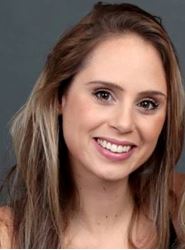
Lecturer, Cardiff University.
Pierre Lepage, 2018
Publication: 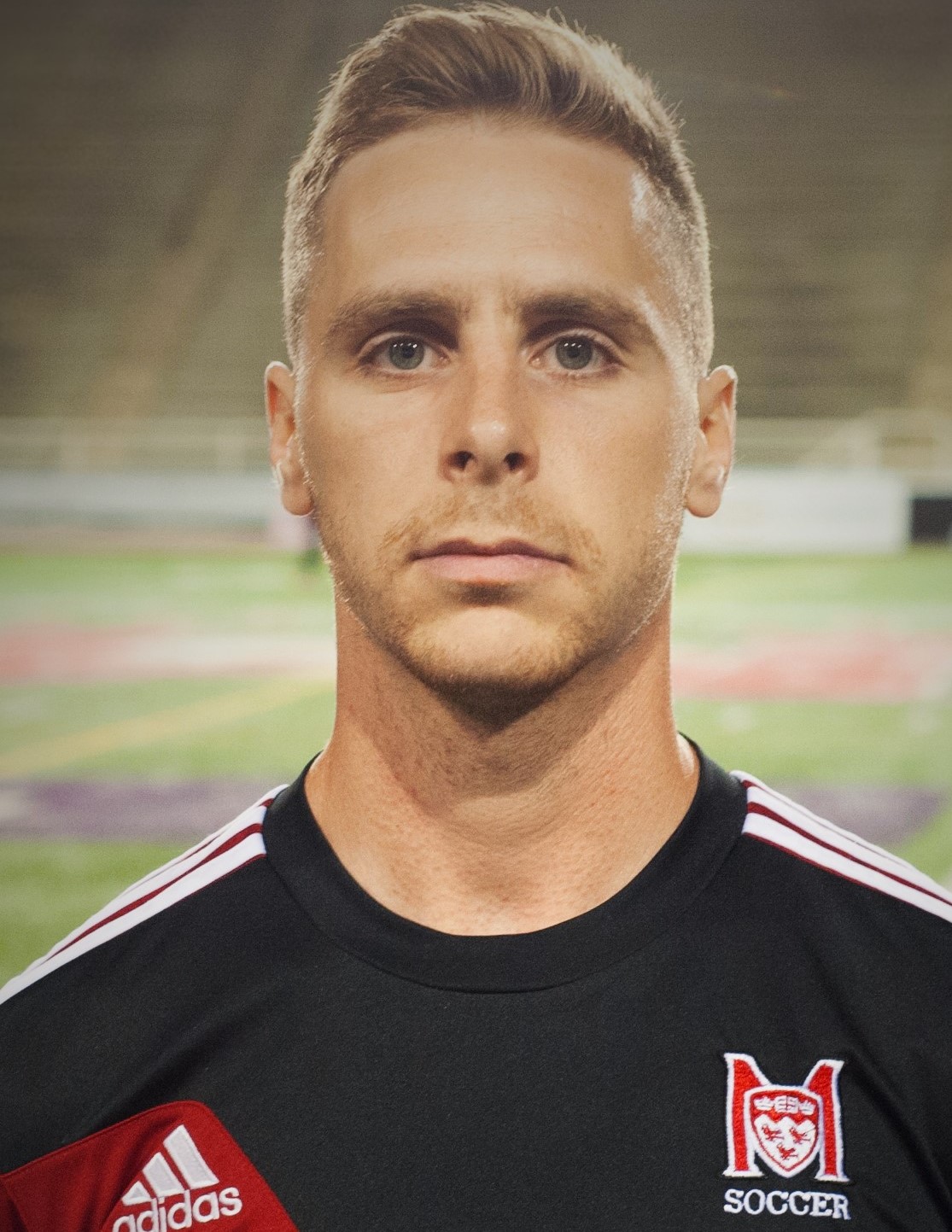
Lepage, P. Bloom, G.A., & Falcão, W.R.(in progress). Development and acquisition of knowledge of youth sport coaches in disability sport.
Current Position::
Soccer coach
|




